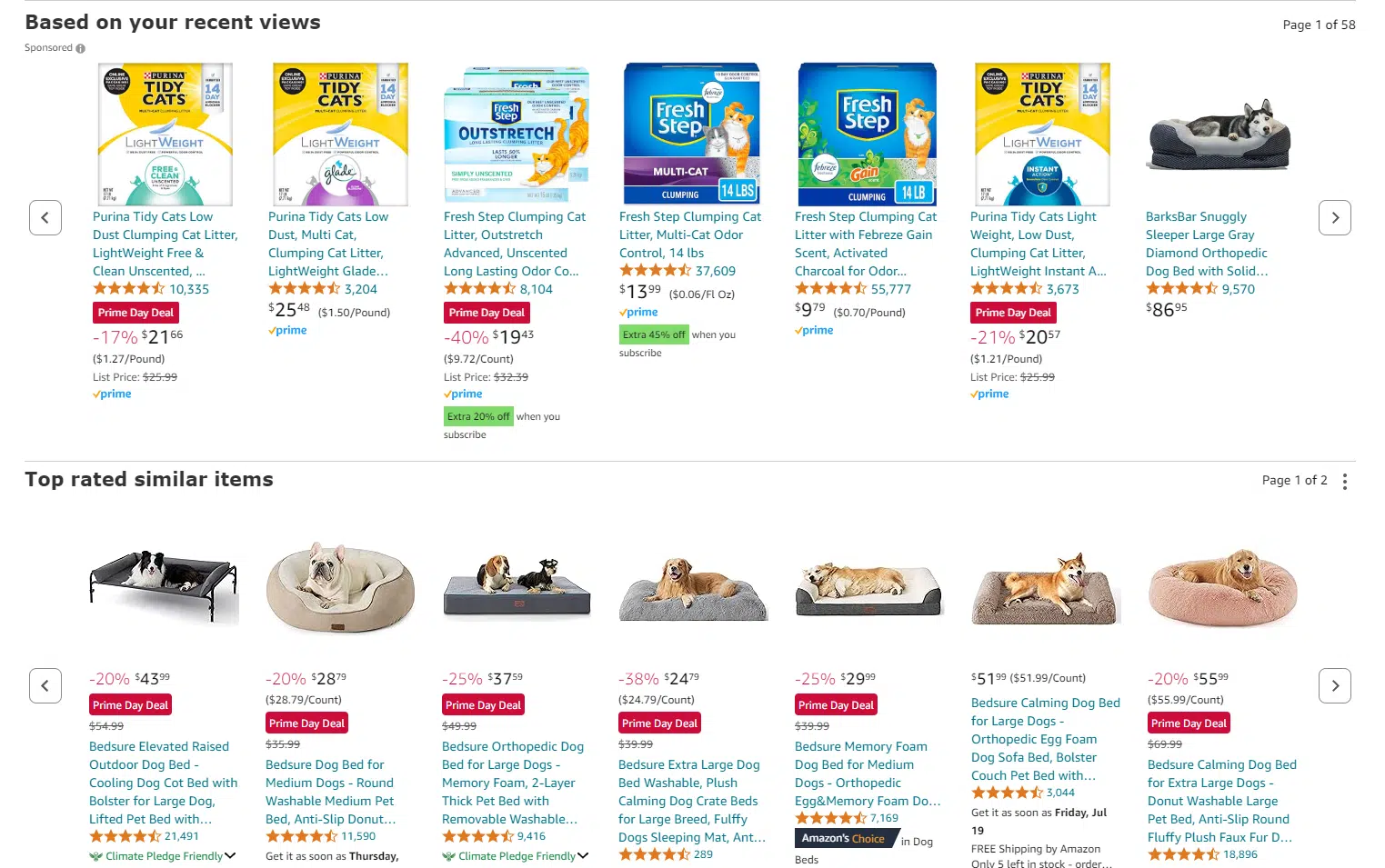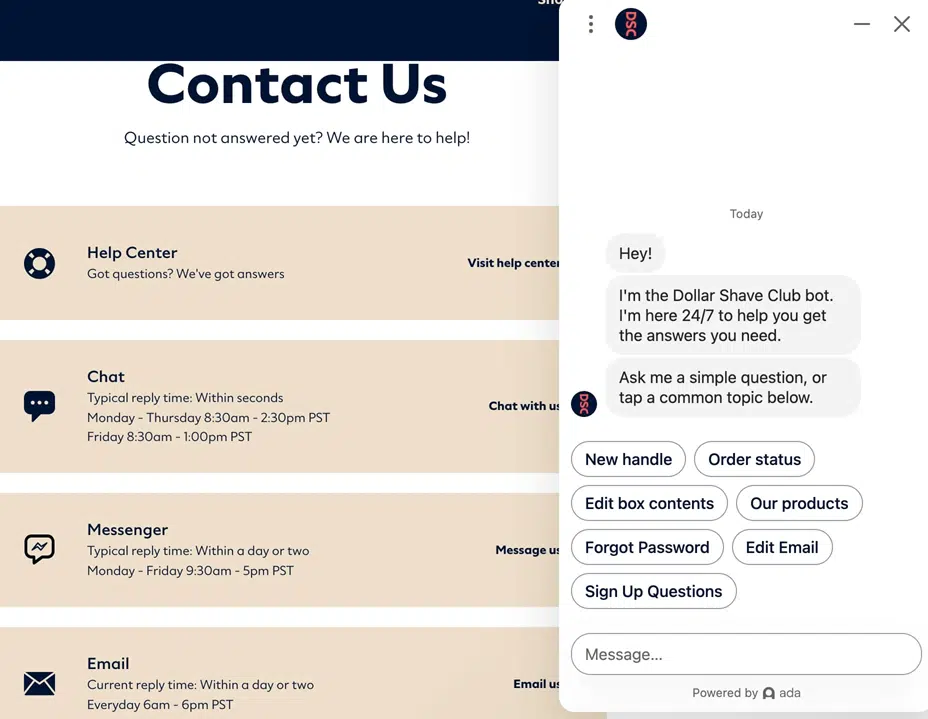Future of AI in content marketing: Key trends and 7 predictions
Stay ahead in content marketing by exploring AI trends and expert predictions that reveal how technology is reshaping audience engagement.
Artificial intelligence (AI) is changing the game in many industries and content marketing is no different.
As we dive deeper into the digital age, AI’s influence on how we create, share and optimize content is only growing.
This article will examine some of the key trends shaping the future of AI in content marketing and expert predictions on how these technologies are set to transform the way brands connect with their audiences.
Marketing AI is already here
The future of content marketing is here, and it’s powered by AI.
Marketing AI is most prominent in a new technology known as content intelligence.
Content intelligence platforms use machine learning algorithms to:
- Analyze massive datasets of content.
- Provide insights that can be used to improve all aspects of content marketing.
This data-driven approach to content marketing helps businesses create more effective campaigns.
Here are some more ways that AI is now used in content marketing:
Generative AI for content marketing
Creating engaging and informative content is essential for any successful marketing strategy.
However, producing high-quality content consistently can be time-consuming and resource-intensive.
This is where generative AI tools like ChatGPT are revolutionizing the content creation process.
Marketers can use AI to generate:
- Blog posts.
- Social media updates.
- Website copy.
- Email marketing campaigns.
This allows marketing teams to scale their content production efforts and free up time to focus on more strategic initiatives.
Hyper-personalized marketing
Consumers today expect personalized experiences. They are more likely to engage with brands that offer content and offers relevant to their interests and needs.
AI can analyze vast amounts of customer data to identify patterns and preferences. This data can then be used to create highly personalized marketing campaigns that deliver the right message to the right person at the right time.
Amazon is a leading example of effective hyper-personalization. If you search for cat litter and click on a product, Amazon will automatically show a “Frequently Bought Together” section related to that search.

Predictive analytics for data-driven decisions
AI-driven predictive analytics lets you move beyond past data (e.g., website activity, purchase history and engagement) to predict outcomes, which is valuable for making informed decisions on inventory, marketing budgets and product development.
Again, Amazon is the perfect example of leveraging predictive analytics to help customers easily find what they’re looking for.

Enhanced customer experience
AI is allowing customers to experience brands in some cool ways.
Take AI-powered chatbots, for example. These smart assistants offer personalized and efficient customer support 24/7.
Whether you have a question at midnight or need help early in the morning, chatbots provide real-time answers tailored just for you.
Here’s how Dollar Shave Club uses AI to handle customer queries:

But it doesn’t stop there. AI is also shaking things up with interactive content. Imagine getting content that feels like it was made just for you – because it was!
AI can create dynamic, personalized experiences that keep you engaged and connected with the brand.
Plus, AI is super helpful in gathering feedback and insights. It can spot trends and determine what people want by analyzing customer interactions.
This means companies can keep improving their products and services, making sure they’re always meeting your needs.
In short, AI is making customer experiences more personal, efficient and engaging, helping brands build stronger relationships with their audiences.
Voice search optimization
With the rise of virtual assistants like Siri, Alexa and Google Assistant, more and more people are using their voices to search for information.
One of the main ways AI is helping is by analyzing voice search patterns. Unlike traditional text searches, voice searches are usually more conversational and natural-sounding.
AI tools analyze these patterns to show what questions people ask and the language they use. This lets you adjust your content to fit natural speech, improving your chances of appearing in voice search results.
AI is also great at helping with SEO for voice search. It can suggest long-tail keywords and phrases commonly used in voice queries and even help optimize website structure and metadata to be more voice-search friendly.
By using AI to fine-tune your content and SEO strategies, you can ensure content is easily discoverable by voice search users.
Augmented reality
With augmented reality (AR), we can deliver immersive experiences.
For example, customers can see how furniture looks in their homes or try on clothes virtually, helping them make confident decisions and boosting sales and satisfaction.
For example, the “#TakeATaste Now” campaign allowed consumers to grab a bottle of Coca-Cola Zero Sugar straight from digital screens via AR and claim the real soda at a nearby Tesco store.

Another great thing about AR is how it enhances storytelling and brand engagement. You can use AR to bring your brands to life in unique and memorable ways.
For instance:
- A cosmetics company might use AR to let customers try on different makeup looks virtually.
- Or a travel company might create an AR app that lets users explore destinations from their living rooms.
These interactive experiences capture attention and create a deeper connection between the brand and its audience.
7 expert predictions in marketing AI
What’s in store for the future of content marketing? Let me share with you seven predictions from the experts.
1. Media democratization
The barriers to entry for content creation have been steadily eroding for years.
Blogs challenged traditional media, self-publishing platforms disrupted the book industry, podcasts offered an alternative to radio and YouTube gave everyone a shot at video stardom.
This democratization of media empowers individuals and smaller organizations to compete with established players in the content marketing landscape.
This shift is driven by several factors, including:
- Lower production costs: Powerful yet affordable software and equipment have made high-quality content creation accessible to almost anyone.
- Direct audience access: Social media and other online platforms allow creators to reach their target audiences directly, bypassing traditional gatekeepers.
- Increased demand for niche content: As consumers grow tired of generic, mass-produced content, there’s a growing appetite for specialized and authentic voices.
This means embracing the power of user-generated content and influencer marketing and creating a strong brand voice across various platforms.
It’s about building communities and fostering engagement rather than simply broadcasting messages.
2. Raising the bar in content generation
The rapid evolution of generative AI tools has injected the content marketing world with a potent mix of excitement and anxiety.
While many marketers are understandably wary of AI’s disruptive potential, its transformative impact on content creation is undeniable.
As AI-powered content generators become increasingly sophisticated, they are poised to establish a new benchmark for quality.
This means content marketers will need to adapt their strategies to stand out in a landscape saturated with AI-generated content.
Simply churning out “good enough” content will no longer suffice. Instead, marketers must strive for excellence in every piece of content they produce.
Here’s how AI-generated content is raising the bar:
- Increased content volume: AI can generate vast amounts of content quickly and efficiently, flooding the digital landscape. This means marketers must produce exceptional content to capture their audience’s attention.
- Improved content quality: AI content generators constantly learn and improve, producing increasingly high-quality content often indistinguishable from human-written content. To compete, marketers need to create original, insightful and engaging content that provides real value to their target audience.
- More personalized content: AI-driven hyper-personalization will continue to become a game-changer, moving far beyond the generic “recommended for you” suggestions. Imagine receiving emails that address you by name, recommend products based on your past purchases, and even offer exclusive discounts tailored to your shopping habits. This level of personalization fosters a stronger emotional connection with customers, leading to increased engagement, brand loyalty and higher conversion rates.
3. Generative AI will take over some SEO traffic
One of the biggest impacts of generative AI on content marketing is its potential to reshape how people search for information online.
Instead of turning to a traditional search engine like Google and clicking through the SERP listing, users can get answers directly from AI chatbots like ChatGPT and Gemini.
This shift in user behavior could lead to a decline in organic search traffic, impacting the effectiveness of traditional SEO strategies.
This change necessitates adapting content strategies for brands that rely heavily on organic search to drive traffic and leads.
Creating high-quality content optimized for specific keywords will have less impact if users don’t click through from search engine results pages.
However, this doesn’t mean that SEO is dead. Instead, it highlights the importance of a multi-faceted content marketing strategy that goes beyond simply targeting keywords.
Dig deeper: How AI will affect the future of search
4. AR/VR support in marketing
Tech-savvy millennials are driving the adoption of augmented reality (AR) and virtual reality (VR) technologies, revolutionizing customer experiences with immersive engagement that captivates.
- AR enhances the real world by layering digital elements onto it, often through smartphone cameras.
- In contrast, VR creates fully immersive, interactive digital environments accessed through headsets, blocking out the physical world.
This technology offers unprecedented opportunities for marketers to connect with their audience in new and exciting ways.
5. The rise of chatbots and social bots
AI-powered chatbots and social bots are transforming how brands connect with their audiences.
Automating and enhancing customer interactions boost engagement and streamline marketing efforts.
Chatbots provide 24/7 customer service, handling high volumes of queries with instant responses, issue resolution and personalized recommendations.
In social media marketing, social bots automate tasks like responding to comments, tracking brand mentions, and monitoring conversations.
This allows marketing teams to focus on strategy and creative content. These AI tools are essential for managing brand presence and improving customer interactions in the digital age.
6. Mobile content is king
As AI evolves, its ability to analyze user behavior on mobile devices will become even more sophisticated, allowing you to deliver hyper-personalized experiences in real time.
Imagine a world where a customer walking by a coffee shop receives a push notification for a discount on their favorite latte – all powered by AI analyzing their location data and past purchase behavior.
The future of marketing is mobile and AI is the key to unlocking its full potential.
7. Changing job roles in marketing
AI is going to shake up marketing jobs in some pretty interesting ways.
As AI takes over routine tasks like crunching data, generating basic content and sorting customer segments, marketers will have more time to focus on the fun stuff – strategy, creativity and building relationships.
Marketers will work with AI, using its data-driven insights to brainstorm ideas, fine-tune campaigns and personalize customer experiences. This partnership between AI and human creativity is set to make our marketing efforts more innovative and effective.
While AI will do much of the heavy lifting, it will also open up new opportunities for us to think strategically, get creative and lead with ethics in the marketing world.
Dig deeper: Why AI can’t replace authentic client relationships
Embracing the future of marketing With AI
An O’Reilly survey revealed that 67% of marketing teams actively use AI, and 26% plan to incorporate it soon. This signifies a major shift in the marketing landscape, with AI tools poised to reshape job roles across the industry.
While some marketers fear AI might replace them, the reality is far more nuanced.
AI is not here to eliminate jobs but to augment them, freeing marketers from repetitive tasks and empowering them to focus on strategic initiatives.
This evolution will require marketers to adapt and acquire new skills to thrive in an AI-driven environment.
Contributing authors are invited to create content for Search Engine Land and are chosen for their expertise and contribution to the search community. Our contributors work under the oversight of the editorial staff and contributions are checked for quality and relevance to our readers. The opinions they express are their own.
Related stories